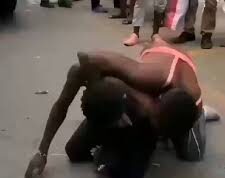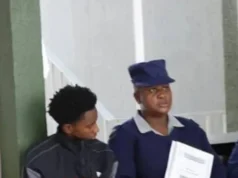PRESIDENT Emmerson Mnangagwa has once again reached out to MDC Alliance leader Nelson Chamisa and other opposition leaders for dialogue to end the country’s myriad crises.
In addition, the 77-year-old Zanu-PF leader also said the country’s deepening challenges required unity of purpose among all Zimbabweans to mitigate them.
This comes as South Africa President Cyril Ramaphosa has been trying to intervene in Zimbabwe’s decades-long political and economic crises.
Ramaphosa has since appointed special envoys — former vice president Baleka Mbete, ex-ministers Sydney Mufamadi and Ngoako Ramatlhodi — to lead his mediation efforts.
Speaking at a meeting of the Political Actors Dialogue (Polad) in Harare yesterday, Mnangagwa said the door remained open for Chamisa and other opposition leaders who had earlier snubbed the platform to join him there and work together to deal with Zimbabwe’s problems.
“I wish to unequivocally state that there is no crisis in Zimbabwe as elections were held in July 2018 and a winner was declared in terms of the country’s Constitution.
“All contestants were invited to join this dialogue in the national interest. The door is still open for those outside … Let me say the challenges facing our country call for continued unity of purpose across the political divide.
“Your continued commitment to the call to serve the country is acknowledged and will surely result in making our country great,” Mnangagwa said, emphasising that all dialogue would be held under the auspices of Polad.
This also comes as the government has recently implored all Zimbabweans to start believing that they have a role to play in efforts to resolve the country’s challenges, without relying on outside help.
Speaking to the Daily News earlier this week, Mnangagwa’s spokesperson George Charamba said it was disconcerting to see that some Zimbabweans expected the country’s problems to be resolved by foreigners.
“Zimbabweans must stop thinking that there is a messiah who is going to come from across the Limpopo or across the seas or from Mars to conquer the country’s problems.
“There is no messiah who is going to come from anywhere. It is only us who can solve our problems through national structures that have been put in place to facilitate such activities.
“South Africa is reacting as a friend and neighbour and not as the chair of the African Union (AU). In terms of diplomacy, there is what we call the principle of subsidiarity,” Charamba told the Daily News then.
“This means that any emerging issues must be resolved at a regional level, that is Sadc, before being escalated to the AU — otherwise what would be the role of sub-regional bodies?
“We all know where the chair of Sadc is. It is in Botswana. So, let it be known that Ramaphosa’s response is coming from a brother, an ally and neighbour, not the chair of the AU,” he said further.
“The special envoys will come, fact-find and leave to give their analysis to Ramaphosa. But what must remain clear is that the solution to the country’s problems will only come from Zimbabweans.
“There is this notion that the coming of South African envoys will dismantle and illegitimise existing national communication structures such as Polad.
“That line of thinking is misguided and has been adopted by individuals who have put their faith in foreigners for assistance.
“Self-respecting Zimbabweans must know that we have national institutions for engaging each other,” he added.
On their part, some senior officials of the MDC Alliance concurred that while South Africa could facilitate dialogue, Zimbabweans were ultimately the custodians of long-term solutions for the country.
“Ultimately, the only peaceful and lasting solution is a genuine, honest and bona fide dialogue among Zimbabweans in which players agree on issues and whether we have the capacity to resolve the problems we face.
“Unfortunately at this stage, we have some people (in Zanu-PF) who do not agree because they think by virtue of having participated in the liberation struggle they have exclusive rights to determine the country’s destiny.
“They fail to realise that the road they are choosing is a well-trodden one and that they will go nowhere,” MDC Alliance vice president, Welshman Ncube, told the Daily News.
“We, therefore, need someone who facilitates dialogue. But it cannot be passive facilitation. Facilitation and mediation are not mutually exclusive. They complement each other.
“I suggest that South Africa, wearing the hat of the African Union chair and as a Sadc member, can do both under the auspices of the regional framework — because if it acts bilaterally it might not have sufficient influence,” he said further.
This comes as there are growing calls from both within and outside the country for Mnangagwa and Chamisa to set aside their differences and hold much-needed talks to extricate the country from its deepening crises.
Both Mnangagwa and Chamisa have previously said that they were interested in dialogue, although nothing concrete has happened — primarily because of differences over the form and platform on which the talks should take place.
On his part, Mnangagwa has been consistent that any talks with Chamisa should be held under Polad — where he regularly holds meetings with fringe opposition leaders.
Chamisa himself has ruled out joining Polad — demanding instead direct dialogue with Mnangagwa.
All this comes as Zimbabwe is in the grip of a huge economic crisis — its worst in a decade — which has stirred anger and restlessness among long-suffering ordinary people.
So big are the local problems, that authorities have had several clashes with government critics who accuse the country’s leaders of failing to end the nation’s economic crisis and rampant public sector graft.
In July, authorities were forced to deploy security forces across the country to thwart mass anti-government demonstrations that had been called by the opposition and pro-democracy groups.
Rights groups have since claimed that dozens of opposition figures and activists have been tortured and assaulted in a retributive exercise by suspected security agents.
On its part, the government has refuted the allegations — claiming instead that the opposition is allegedly working with foreigners to destabilise the country.
Source – dailynews








